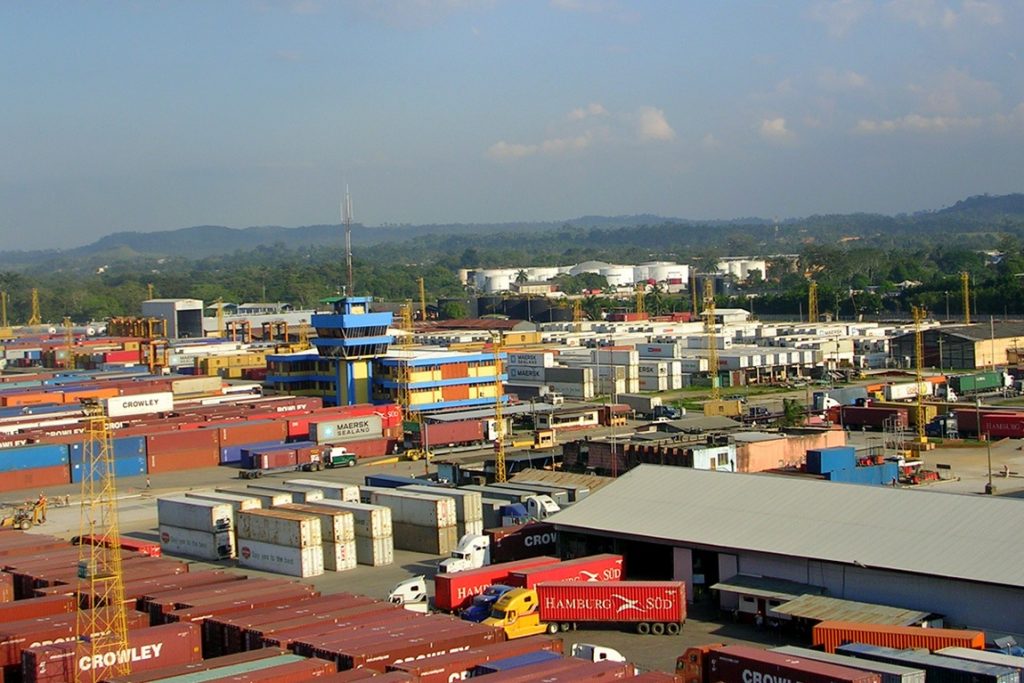Planned Guatemalan trucker strike threatens fresh produce export stability

As a repeat last year's strike looms large, growers and traders have called for improved dialogue to prevent another logistics disaster from hitting exports.
Guatemala's Heavy Transport Union has planned a strike on Jan. 17 to protest fines over traffic restrictions through the country's capital, leaving farmers and overseas importers uneasy about how long the ordeal may last.
He explains the government has placed limitations on when trucks can pass through the capital, and drivers who have disobeyed the rules have been caught out with hefty fines.
"They call that unjust - they’re being ticketed very often and for significant amounts of money," Ocampo says.
"If it’s kind of an ongoing situation and every few months something comes up," says Florida-based HLB Specialties operations director Andres Ocampo, drawing parallels between a strike in October and November last year with the expected action next week.
The drastic measure blocked ports as well as land transport out of the country.
"In our regard we get affected because of papayas, but it’s not only papayas – it’s Chinese vegetables, limes, melons, so that might have a significant impact.
"It's not clear if they’re going to continue, whether it might drag on if they don’t have the solutions they’re looking for, or if they’re going to do it just for one day and then move on."
Based on previous cases, Ocampo believes the former is more likely.
"If this is similar to what we faced in October and November, I know there will be a drop in arrivals into the U.S. in terms of volumes because it’s just not feasible to move the cargo," he says.
"And the ones that dare to work get ostracized by the association, so they don’t want to risk that. So there’s kind of a deadlock."
Alpine Fresh's GM for Guatemala, Rodolfo Quezada, agrees it's difficult to find alternative solutions. Shipping fresh produce via airfreight is one possibility, but costs range from US$0-70-1 per kilo (2.2 pounds), compared to US$0.20 for seafreight.
"Also, the capacity isn't there as much for airfreight in perishable products," Quezada says.
"It greatly affected French beans, sweet peas, Chinese peas, Brussels sprouts, all the perishable products. Also, they are cultivated by small growers nationwide, so thousands of people are affected by the strike.
"We hope everything can be resolved, because there would be great losses for us."
Quezada also raises his concerns about the heightened level of ostracization truckers face if they chose to go against the union line.
"It’s important to note there are other ports on the Atlantic, but they’re on the Honduran side. And you have to ask for permits to use their ports.
"Firstly there's the permits, and secondly the truckers have made this strike violent. So for those heavy transport drivers who want to move cargo, they get threatened."
While a few days of strikes may not sound like much, Quezada points to a compounding effect in these cases due to capacity constraints at the port.
"For example, if the strike lasts five days, the problem persists for us for three more weeks because the ports are congested and get filled with containers, and they don’t have the capacity to be able to load the ships and do it quickly.
"At the core of the problem is that they haven’t built alternative roads to circulate around the city...there are alternative roads that are being built, but they need to be given priority," he says, adding more dialogue is needed and the central government needs to step in to speed up the process.
"If you come from the west of Guatemala - from where most of these products come - and you want to go to the Port of Santo Tomas de Castillo which is in the east on the Atlantic, you have to go through the city because there is no alternative route."
For mango grower Guillermo Fuentes of Menuiserie, there is no immediate threat from the strikes as the season is yet to begin.
On the other hand, March isn't that far away considering the strike is now repeating itself just months after the last one.
"We need a fixed date to find a solution to the problems. It seems the government is lacking in fixing the rules of the game so that people know what to do," he says.
"We haven’t had problems like what happened last time where they took the port and ships couldn’t load. It was disastrous.
"That means elevated costs because you lose the export contracts."
Strikes are one issue, but Guatemala's growers are also contending with climatic and financial difficulties. We will be publishing more in a second instalment on Guatemala's fresh produce industry challenges later this week.
HLB Specialties off to a strong start for 2017
Despite concerns about the Guatemalan situation, HLB Specialties is lucky to have alternative supplies from Mexico.
"So we're able to offset some of the loss of volume from Guatemala with production from Mexico. Obviously it’s not a 100% solution, but at least it helps to ameliorate the downfall of supplies from Guatemala," says Ocampo.
"2017 has started very strong for us, for example in organic volumes which are really taking up.
"The organic large papaya that we bring from Mexico, we’re penetrating with new customers on a much larger scale. So that keeps growing and it’s pointing to a great 2017 in that regard."
He adds the company is also busy catering to the demand of the Asian community in the lead up to Chinese New Year, which is due to take place on Jan. 28.
"Papayas are a big item for the Asian community, and the Chinese in particular, so those are things that are keeping us busy in the first few months of the year where we need to guarantee that we have the supply to cover that holiday."





































